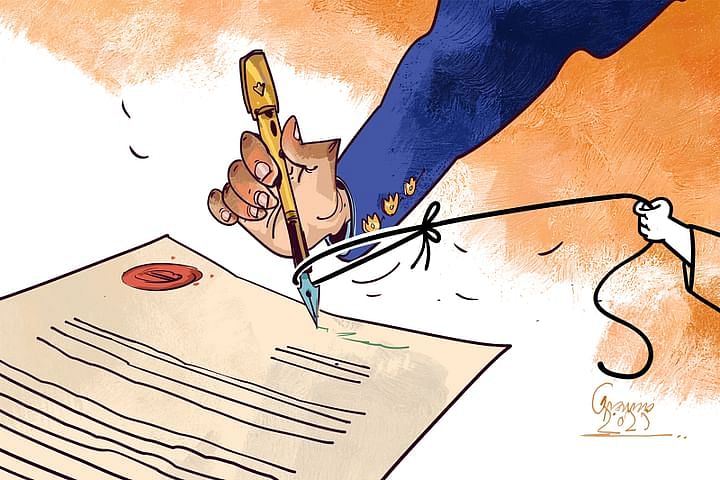
Among different most discussed issues of social media, one is that despite being completely ready, the proposed water management project is not being presented in the Executive Committee of the National Economic Council’s (ECNEC) meeting for approval due to India’s objection. About three years ago, prime minister Sheikh Hasina requested the president of China, Xi Jinping in this regard. China has turned the Huang Ho river into a ‘boon’, which was once regarded as the ‘sorrow of China’.
PM Hasina requested to know how like the Huang Ho river water management system, the Teesta river can be mordernaised through multiple projects, which has been a curse for the people of the north-western region of Bangladesh. Responding to her request,
Responding to her request, China adopted a Teesta feasibility study project and implemented it with their own fund, and handed over it to Bangladesh several months ago. China also proposed to give a loan for the implementation of the project and Bangladesh accepted that.
According to the proposed Teesta project, the depth would be increased up to 10 metres in 115 kilometres of the Teesta river within the border of Bangladesh and the width of the river would be lessened drastically.
From the description of the proposed project on the internet, it seemed that it would really bring a revolutionary change in the lives of the most poverty stricken people of the country. I was eagerly observing the progress in the approval of the project proposal. The state minister of the water resources ministry, secretary and the chairman of the Bangladesh Water Development Board hoped that the project would be approved in the ECNEC meeting by December 2020. However, even after three months, there was no progress and it was revealed that India is opposing this project.
India thinks that participation of China in this project would endanger the security of the north-eastern region of their country. For this reason, India has been pressuring Bangladesh to suspend the project.
India is saying that, if China is involved in this project, then more than a thousand Chinese people will stay near the “chicken neck” in the Shiliguri corridor which is not acceptable for India. This is why India is asking Bangladesh to move away from the project.
Even talks have been spreading that India has assured Bangladesh that if Mamta Banerjee fails to stay in power in the upcoming election in West Bengal, then there would be no more hindrance to sign the Teesta water sharing agreement, which has been stalled for 11 years.
Indian high commissioner to Bangladesh, Vikram Doraiswami claimed in a programme of Diplomatic Correspondent Association of Bangladesh (DCAB) in Dhaka on 15 February that India never shows any ‘big-brother’ attitude towards Bangladesh. Now, if a project of our own interest has been canceled on India’s pressure, what will we call it? Why will the Chinese engineers and technicians pose a threat for India’s state security? The Siliguri chicken neck is far away from the place where the Teesta river enters into Bangladesh. And how the Chinese nationals who will be stationed in the project area which is several kilometers inwards from the Bangladesh-India border have become a sensitive issue for India?
We still remember that the deep sea port project funded by China has been canceled due to India’s objection. However, Bangladesh got the chance to build an alternative and better deep sea port in Matarbari of Maheshkhali funded by Japan, and now the construction work of that port is in full swing. But the question that must be answered by the ruling elites of our state is as an independent and sovereign state, can we not independently take up projects in our interest? Although India is our friend, there is scope of bowing down to any unfair pressure from India.
We are noticing that there has been business of 100 billion dollars between India and China despite their border dispute. However, India is opposing whenever Bangladesh tries to get loans with easy terms an d conditions from China showing various excuses. We know that India has provided Bangladesh with loan assistance in various projects.
When both the countries were on the verge of signing the Teesta water sharing agreement in 2011, the then prime minister of India, Manmohan Singh moved away from it for the objection of the chief minister of West Bengal.
India has long stalled the Teesta water sharing agreement between the two countries. However, they are now assuring to sign the deal, as the proposed Teesta project came in front.
We have to take it into our consideration that Teeta water sharing agreement and proposed Teesta deal are not contradictory. Whether the Teesta water sharing agreement is signed or not, it is estimated that the proposed Teesta deal will bring revolutionary changes in the lives of poverty stricken people of that region. If the agreement is reached, the water level of the river may increase a little in the dry season, but it will not solve the flood problem that the people of this region are facing due to opening all the gates of Gajoldoba Barrage in the rainy season.
A sustainable solution can be made if the water preserved in the water bodies of the proposed project can be utilised in a planned irrigation system. The interest of the people of that region has also increased after discussing different aspects of the project. There have been human chains and rallies in the north-western region of the country in recent times for the immediate implementation of the project. I humbly request the prime minister not to delay the approval of the Teesta project.
Moinul Islam is a retired professor of economics at Chittagong University
*This report appeared in the print and online edition of Prothom Alo and has been rewritten in English by Ashish Basu.









